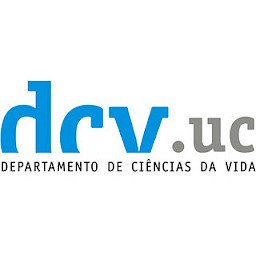Presentation
This PhD program has the general objective of training highly qualified researchers and professionals in the areas of specialization. It is divided into three branches: Social and Cultural Anthropology (ASC), Biological Anthropology (AB) and Forensic Anthropology (AF). This doctoral program offers unique training in the national context in AB and AF, continuing a foundational history of national studies in these areas.
General information
- Course coordinator: Prof. Doutor Gonçalo Santos (gsantos@uc.pt)
- Mobility coordinator: Prof. Doutor Gonçalo Santos (gsantos@uc.pt)
- Course type: 3rd Cycle Studies
- Qualification Awarded: Doutor
- Objectives of the course: The objectives of the third cicle course are to provide consistent training and updated knowledge in Anthropology, in each of the three specializations: Biological Anthropology, Social and Cultural Anthropology and Forensic Anthropology. The units of the curriculum complement each other in order to give to the student the knowledge and skills that enable to compete and integrate teams in the global market. The programme aims to study human health, disease and well-being; the understanding of the human variation, in past and living populations, from a bio-cultural point of view; social practices and representations of culture, politics, patrimony and museums; topics such as human evolution, human ecology, bioarcheology/skeletal biology, paleopathology, genetics, forensics, cultural and social dynamics.
- Graduation requirements: In the first year, the students must complete a set of 60 ECTS. After obtaining these 60 ECTS, students must obtain approval in the Advanced Seminars in Anthropology (in a total of 6 ECTS) and devote themselves to the research work with a view to writing the Thesis (114 ECTS), which will be evaluated by a jury.
- Admission requirements: a) Hold a master's degree or legal equivalent;
b) Hold a bachelor's degree in Anthropology and related areas with at least 4 years of full-time academic training in Higher Education or equivalent in a degree obtained abroad, and a minimum classification of 18 (out of 20);
c) Hold a school, scientific or professional curriculum that is recognized as attesting capacity to pursue this cycle of studies by the Scientific Committee of the Faculty of Sciences and Technology of the University of Coimbra. - Professional goals: Museums, Municipalities, Laboratories, Forensic Institutions, Universities, Research, Civil Society Organizations, International Organizations (ex: UN Agencies), Corporations.
- Tuition fee: 2.750€
-
Scholarships: The Program does not have scholarships and cannot answer any financial questions, which should be addressed to Academic Services. Potential PhD supervisors may have information about grants.
-
Supervisors and areas of intervention: The practical component of the PhD in Anthropology is generally carried out in collaboration with Research Centersor other institutions (eg Hospitals). Research Centre for Anthropology and Health (CIAS), Centro em Rede de Investigação em Antropologia (CRIA) and Centre for Functional Ecology (CFE) are some of the research centers.
- Applications: Application submission and information about applications.
-
Specialization areas: Biological Anthropology, Forensic Anthropology and Social and Cultural Anthropology
- More information: UC website
Application calendar
SCHEDULE of application actions for doctoral courses, from the publication of vacancies to the date of registration and enrollment.
Rules for providing doctoral exams
Check in the DOCUMENT the defined rules and standards that you must follow to give evidence, based on legal regulations.
Course steps
Check all the STEPS of the course by checking the information on this website.
Doctoral theses presented
You can CONSULT the doctoral theses that were presented at the Department of Life Sciences in the area of Anthropologuy.

